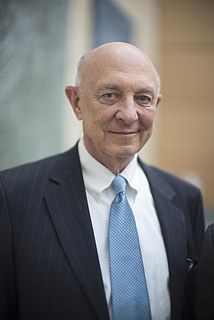A Quote by Michael Pollan
It's the embrace of corn-based ethanol that has driven up all food prices. It's not making agriculture more sustainable.
Related Quotes
It's estimated that about 30 percent of the increase in grain prices could be attributed to the decision to embrace biofuels, particularly corn-based ethanol. It has done nothing for climate change and the business is in real trouble now with the collapse of oil prices. It's completely dependent on a dollar subsidy and tariff from the government.
The UN special envoy on food called it a 'crime against humanity' to funnel 100 million tons of grain and corn to ethanol when almost a billion people are starving. So what kind of crime is animal agriculture, which uses 756 million tons of grain and corn per year, much more than enough to adequately feed the 1.4 billion human who are living in dire poverty?
Yet if you go to the supermarket and look at food that's produced through industrial agriculture, look at what's happened to the prices. Have they been going down? They've been going up and they will continue to go up. So the choice is either, do we hitch onto a system of agriculture that's doomed and will doom the planet with it, and go along the route of industrial agriculture, or do we want to shift to a kind of system that we know is going to be, in the long run, cheaper, because we'll have a planet left at the end of it? We need to factor that cost in.
When you have weird policy decisions in the United States that then ripple out throughout the world, the rest of the world really takes it on the chin. When the U.S. decides to set their corn on fire rather than to eat it, which is what the biofuels policy basically is - then that drives up the price of corn. It drives up the price of substitutes. And all of a sudden you have a sort of spiral of food prices. And other countries don't have the resources, because they're not allowed to, to weather the storm.
The government will pay certain farmers to not grow corn. Wow. Where's my check? That'd be great. "Hey, what do you do for a living?" "Well, I don't grow corn. Get up at the crack of noon, make sure there's no corn growing. I'm gonna get up early tomorrow. And not plow. You know, we used to not grow tomatoes-but there's more money in not growing corn."


































